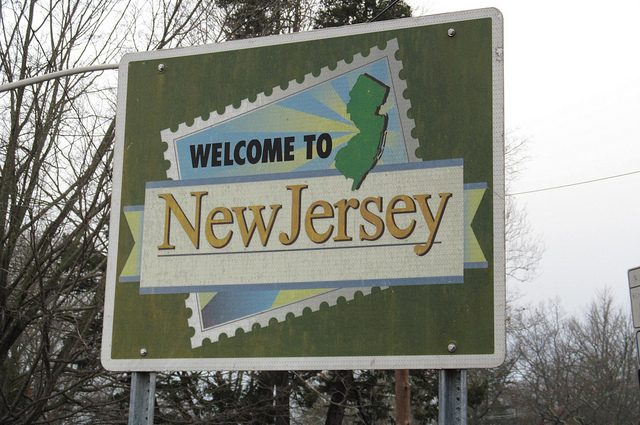
A “years-long systemic effort” to “destroy competition.”
Allegations of a conspiracy with real estate investors to push a health system in New Jersey into bankruptcy. Accusations of neglecting the poor and uninsured.
All of the above have made their way into a lawsuit that pits a three-hospital New Jersey health system against the largest health system in the state, accusing it of conspiracy to eliminate competition.
CarePoint Health filed the lawsuit against RWJBarnabas Health on Sept. 6. The plaintiff alleged that RWJBarnabas pursued a multi-year anti-competitive scheme to “monopolize the provision of general acute care hospital services and related health care services in northern New Jersey.”
CarePoint comprises 349-bed Christ Hospital, 224-bed Bayonne Medical Center and 348-bed Hoboken University Medical Center. RWJBarnabas Health includes 12 acute care hospitals and four children’s hospitals, along with other locations and services, including outpatient centers, ambulatory care centers, home care and hospice programs and accountable care organizations.
The lawsuit alleges RWJBarnabas conspired with real estate investors, government officials and Horizon Blue Cross Blue Shield (New Jersey’s largest payer) to usurp CarePoint’s patient revenue and push the health system into bankruptcy.
CarePoint claimed that it was RWJBarnabas’ goal to force shutdowns for Christ Hospital and Bayonne Medical Center but acquire Hoboken University Medical Center because of its more lucrative payer mix. This alleged plan “disregarded the needs of the poor, underinsured and charity care patients which CarePoint serves in its role as the safety net hospital system in Jersey City and surrounding areas,” the lawsuit stated.
The complaint said that RWJBarnabas issued a fake letter of intent to acquire Christ Hospital and Hoboken University Medical Center in 2019. Carepoint claimed that RWJBarnabas did not actually want to buy these hospitals — instead RWJBarnabas was conspiring with “real estate players” to gather market knowledge and competitive intelligence to “freeze programmatic growth and any significant hiring or construction at Christ Hospital.”
At first, CarePoint believed the offer was brought in good faith. Negotiations stopped after CarePoint began to believe RWJBarnabas had plans to hold the real estate “hostage.” RWJBarnabas circulated rumors about consolidating and closing Christ Hospital or reducing it to a small emergency department, which led to the attrition of physicians, employees and patients at the hospital, the lawsuit alleged.
The lawsuit drew attention to a satellite emergency department RWJBarnabas opened in “in coordination with Horizon” in 2017, just five blocks away from CarePoint’s Bayonne Medical Center. The resulting divergence of urgent care patients caused CarePoint to lose at least $80 million over the last three years, according to the lawsuit. Carepoint alleged that the satellite emergency department was constructed and began operating without the required approval of the New Jersey Department of Health.
Carepoint also claimed it has lost at least $227 million as a result of RWJBarnabas’ efforts to divert and steer to its Jersey City Medical Center. RWJBarnabas has been diverting EMS patient transports away from CarePoint facilities and to the medical center, particularly patients with private medical insurance or the financial means to pay for the transport and any resulting emergency or in-patient services, the lawsuit alleged. It also alleged that RWJBarnabas steered uninsured patients and those covered by Medicare or Medicaid to CarePoint facilities.
These practices represent a “flagrant disregard” of a 2016 agreement settling earlier litigation regarding ambulance service in Jersey City and the surrounding area, CarePoint said. The insurance information RWJBarnabas uses to divert and steer EMS transport was obtained through Horizon, according to the complaint.
The lawsuit also alleged that RWJBarnabas and its conspirators assert “undue influence on the NJDOH and the governor’s office to hinder CarePoint from growing programs for the community, from receiving funds for serving the underinsured and underserved and also to create roadblocks in CarePoint’s evolution into a regional powerhouse in healthcare with a stable financial base.”
RWJBarnabas’ wrongdoings violate the Sherman Antitrust Act and the New Jersey Antitrust Act, the lawsuit claimed.
A RWJBarnabas statement forcefully dismissed the allegations.
The lawsuit is “yet another in a series of baseless complaints filed by CarePoint, an organization whose leadership apparently prefers to assign blame to others rather than accept responsibility for the unsatisfactory results of their own poor business decisions and actions over the years,” a RWJBarnabas spokesperson said. The spokesperson would not comment on the specific allegations beyond what the health system said in a statement last week.
This is not the first time RWJBarnabas’ alleged anti-competitive business practices have made headlines this year. In June, the health system called off a merger with Saint Peter’s Healthcare System after the Federal Trade Commission blocked the deal, saying it would hurt competition and increase prices.
Photo: Flickr user Doug Kerr















